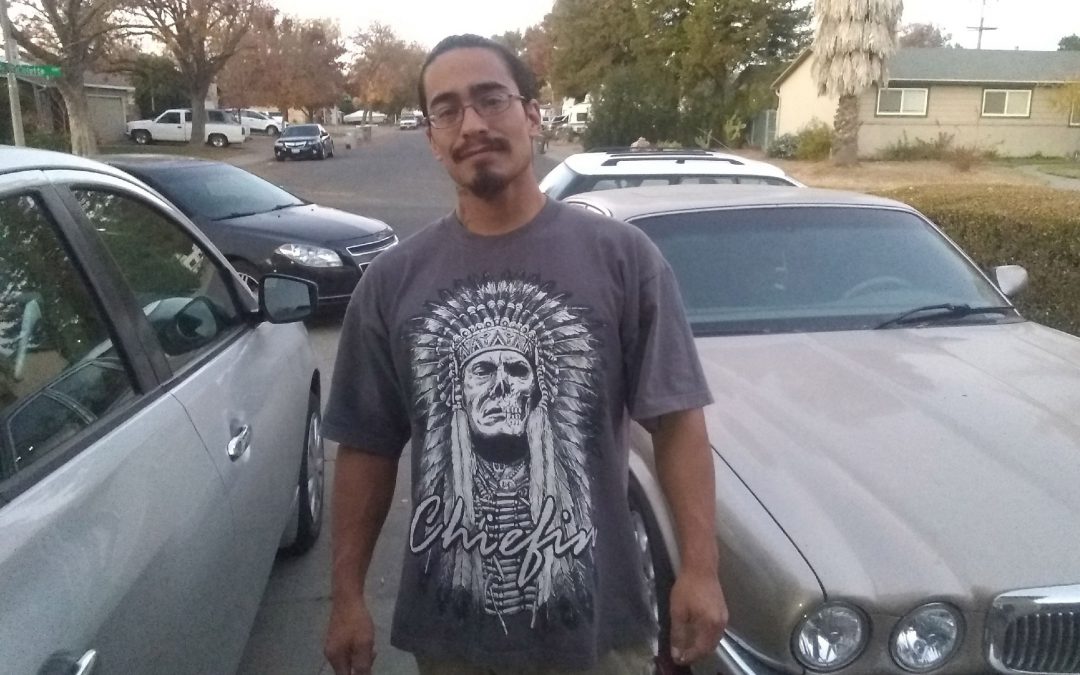WASHINGTON — Christopher Garcia’s grandparents immigrated from Mexico to California to build opportunities for their family. His mother is politically engaged, working in a local polling place. But the 33-year-old forklift operator said that he will never register to vote. He believes the political system is built to oppress the working class.
“Even though this is the land of opportunity, it’s not really anymore,” Garcia said.
Despite being the largest minority group in the U.S., many Latinos did not vote in this year’s presidential election. Some, like Garcia, blame it on distrust in the political system. However, apathy or political barriers have also been named as reasons in a Medill School of Journalism/NPR/Ipsos poll of nonvoters.
In comparison to other groups, Latinos show up to the polls at much lower rates. In 2016, about 47.6% of all eligible Latinos voted, compared with 65% of white voters and almost 60% of Black voters, according to the U.S. census.
Behind those numbers is a lack of trust in political institutions. Over 80% of Latino nonvoters believe that traditional parties and politicians do not care about their community, according to a Medill School of Journalism/NPR/Ipsos poll of 1,103 nonvoters and 740 voters conducted immediately after Nov. 3. And although nearly 85% of Latino nonvoters are not satisfied with where the country is headed, only 36% of all polled Latinos reported voting on November compared with 71% of white Americans and 65% of Black eligible voters.
Garcia, one of those surveyed, is a prime example of that sentiment. Growing up, he watched his mother transition from a farm worker to attending night school and working as an election judge at a local polling place. She began to “believe in the system,” causing the second-generation Mexican American to want to follow in her footsteps and “do something good.”
Now, he is skeptical of what the American political system has to offer for his community.
“When I look across the street, I see a home that’s trying, struggling to try and be beautiful and nice,” Garcia said. “Inside that home there’s people that are oppressed, that are trying to hide from the pain.”
Much of his distrust stems from laws passed in Washington that he said help the middle class and above, but oppress low-income families struggling to survive.
“For the majority it’s nothing, but towards the minority it’s everything,” Garcia said.
Marcy Miranda, from the progressive Latino organization Jolt Texas, said that groups like hers work to educate political parties, which often neglect the Hispanic community. “Even if they’re not inviting us, we need to be at the table,” she said, adding that Jolt Texas, which has knocked on over 77,000 doors in Texas this year, is “doing the invitation for them.”
“In Latino culture, if you don’t get invited to a party, you’re not going to show up,” Miranda said. “If political parties aren’t opening that door to Latinos and aren’t inviting them in, aren’t knocking and saying, ‘This is what you’re missing out on,’ then we’re going to feel like you have been neglected. And we’re not going to feel like we’re a part of the process, we’re not going to feel like politicians or candidates or political parties want our input.”
Adrian Olmos, a 30-year-old nonvoter survey respondent living in Georgetown, Texas about 25 miles north of Austin, said that he has never felt included in the political process.
“I’ve heard every president in every election is always promising something different. But what I see is everything really stays the same, nothing ever changes, at least not for people like me or people I’m around,” Olmos said.
Héctor Sánchez, executive director of Mi Familia Vota, a progressive civic engagement organization, said that institutions such as political parties “ignore the Latino vote and just expect Latinos to come out in historical numbers.”
“It’s important to understand that when we ask questions about the Latino vote, instead of saying why they don’t vote, we need to understand why it is so hard for Latinos to vote,” said Sánchez, whose organization has the largest field operation among the Hispanic civic organizations in the country. “More importantly, we know, as an organization, that when we invest, when we educate, when we do the basic work of democracy, Latinos engage in very high numbers.”
Some nonvoters said that they regretted not showing up to the polls and will make an effort to engage politically in 2024. Domingo Camacho, 36, a Colombian-born resident of El Paso, Texas, said that he was planning to vote this year, but that he missed the deadline to register. “When I realized, it was too late,” he said.
“The candidate I wanted to win didn’t win so I believe my vote would’ve made a difference,” Camacho said in Spanish. He says that he is anti-abortion and opposed to same-sex marriage, and that he supports Republicans because they defend his Catholic values. Camacho added that he believes that his vote will become more important over time as a counterbalance as “Democrats become more important in the state.”
But in California, 26-year-old nonvoter Samuel Garcia, a first-generation Mexican American who participated in the Medill/NPR/Ipsos survey, isn’t registered to vote because he thinks, as a Democrat, his ballot won’t make a difference in the overwhelmingly Democratic state.
He would have voted for Joe Biden this year and said he will only vote in the future if he lives in a state where the outcome is not ordained in advance.

